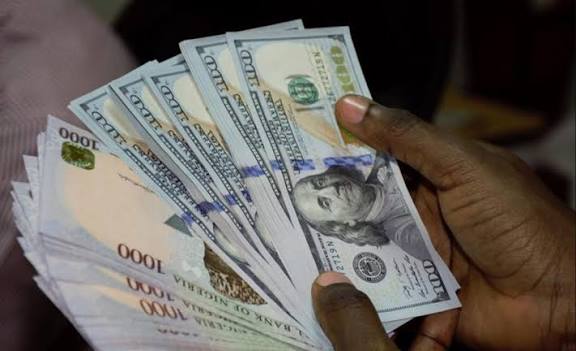
Mary Remmy Njoku Blasts Ibom Air Over Viral Passenger Incident, Demands Justice and Compensation

Nollywood actress and media mogul Mary Remmy Njoku has strongly condemned the controversial treatment of a female passenger in the now-infamous Ibom Air saga, calling it “absolutely unacceptable” and demanding that the victim be compensated for the damage done to her life and dignity. In a passionate statement on social media, Njoku expressed outrage over the manner in which the incident was handled, accusing the airline and those involved of dehumanizing the woman in a way that should have no place in a civilized society.
The incident, which has triggered public outrage and ignited debates about human rights, professionalism, and customer treatment in Nigeria’s aviation sector, reportedly saw a female passenger forcibly removed from an Ibom Air flight. While details remain contested, viral videos circulating online show disturbing moments of the altercation, including claims that the woman was stripped of her dignity in front of others, with footage allegedly broadcast online by those involved. The public reaction has been swift, with many Nigerians condemning the act as a gross abuse of power and an affront to basic human decency.
Mary Remmy Njoku, reacting to the disturbing visuals and reports, acknowledged that removing a passenger from a plane for misconduct could be justified in certain situations but maintained that the manner in which it was done in this case crossed every ethical and professional line. “I understand removing her from the plane. That’s not the issue,” Njoku stated. “What I cannot understand is stripping her while doing so and then putting it all over the internet. Airline or airport staff are trained professionals, and I refuse to believe that dehumanizing someone, stripping a woman naked, and broadcasting it online is part of that training, no matter what crime she may have committed.”
Her post went further to draw comparisons with law enforcement procedures, pointing out that even police officers, when parading suspects for serious crimes, ensure that individuals remain clothed and that their private parts are covered. “I’ve seen police parade even criminals and alleged murderers, and they still ensure those people are dressed and their private parts are covered. Authorities do not parade people naked. How much more should we expect from airline officials? They are not thugs!” she wrote.
The actress, who has often used her platform to speak against injustice and gender-based mistreatment, stressed that while the passenger in question should face any lawful penalties for her actions, the treatment she endured must not go unpunished. For Njoku, the matter is not just about one individual but about the dignity of all Nigerian women and the precedent such acts could set if left unchallenged. “While she is being penalized or sent to jail for her actions, she should not be walking away from this alone. She deserves compensation for the damage done to her life and the dignity of every Nigerian woman. Because this is NOT acceptable! Absolutely NOT acceptable!!!” she insisted.
Njoku’s statement has amplified the already intense online debate surrounding the Ibom Air saga. Supporters praised her courage for speaking out, noting that public figures in the entertainment industry often avoid controversial social issues for fear of backlash. “Mary said exactly what we were all thinking,” one user commented under her post. “No matter the crime, nobody deserves to be humiliated like that.” Others echoed her sentiment, stressing that the case is about basic human rights, not just customer service etiquette.
The incident has also raised questions about the training and accountability of airline and airport staff in Nigeria. Industry observers argue that while crew members are responsible for maintaining safety and order on board, they are also bound by strict professional conduct standards that prohibit degrading or humiliating passengers. If proven true, the allegations of stripping and public shaming could amount to serious breaches of aviation ethics, workplace policy, and potentially the law.
Human rights advocates have since weighed in, with some calling for an independent investigation into the incident, citing possible violations of the woman’s right to dignity as enshrined in Section 34(1) of the Nigerian Constitution, which guarantees that “every individual is entitled to respect for the dignity of his person” and prohibits “torture, inhuman or degrading treatment.” Legal experts say that if the woman chooses to pursue the matter in court, she could potentially seek damages for emotional distress, reputational harm, and violation of her constitutional rights.
The backlash against Ibom Air has been compounded by eyewitness reports and alternative accounts that contradict the airline’s public statements. Some witnesses allege that the situation could have been resolved more discreetly, without escalating into a public spectacle. Meanwhile, others question why videos of the alleged stripping were recorded and shared online in the first place, suggesting that whoever leaked the footage may also face legal consequences.
For many Nigerians, the incident is symptomatic of a wider culture in which people in positions of authority—whether in government, corporate settings, or service industries—sometimes misuse their power, acting with little regard for the rights and dignity of others. The viral nature of this particular case has intensified calls for reform, with social media users demanding better enforcement of professional conduct standards and more robust consequences for those who violate them.
Ibom Air, for its part, has not escaped the storm of criticism. While the airline has released an official statement defending the actions of its staff and claiming adherence to safety protocols, many members of the public remain unconvinced. Critics argue that the company’s response has failed to adequately address the allegations of humiliation and public indecency, focusing instead on justifying the removal of the passenger without acknowledging the controversy over how it was carried out.
As the story continues to unfold, all eyes are on whether the woman at the center of the storm will take legal action, and whether authorities will step in to investigate the conduct of the airline staff involved. Advocacy groups have begun offering support, with some lawyers reportedly willing to represent her pro bono. The incident has now moved beyond the realm of a simple in-flight dispute, becoming a litmus test for how Nigerian society addresses public humiliation, gender-based mistreatment, and corporate responsibility.
Mary Remmy Njoku’s outspoken stance has given the conversation new momentum, particularly among women’s rights advocates who see the case as an opportunity to demand stronger protections for women in public and private spaces. Her words—sharp, clear, and unapologetic—have struck a nerve in a country where public shaming and the misuse of authority often go unchallenged. Whether or not justice is ultimately served in this case, her intervention has ensured that the debate will not fade quietly.
For now, the Ibom Air saga remains one of the most discussed controversies in recent weeks, with emotions running high and the demand for accountability growing louder. And as Njoku firmly declared, one thing is clear: “This is NOT acceptable. Absolutely NOT acceptable.”


